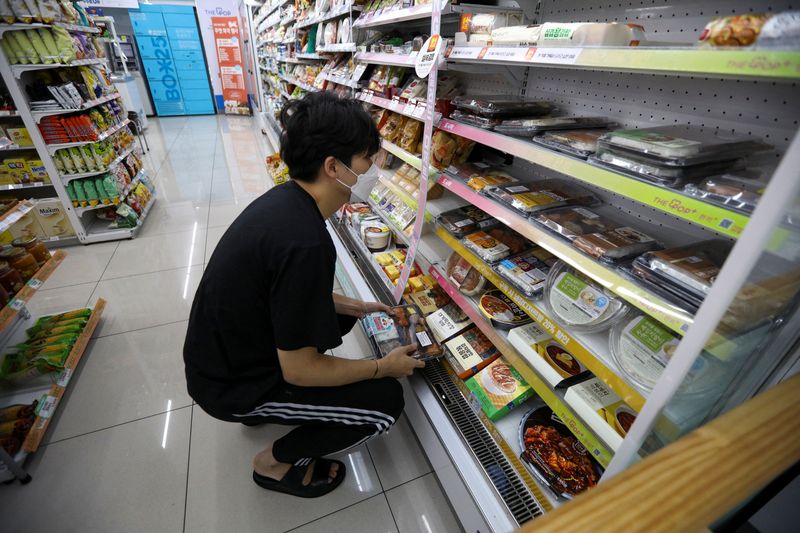By Jihoon Lee
SEOUL (Reuters) -South Korea's consumer prices rose 5.0% in November from a year earlier, government data showed on Friday, marking the slowest pace since April and slightly missing market expectations.
The November inflation rate compared with 5.7% in October and 5.1% tipped in a Reuters poll. The country's inflation rate has been falling since hitting a 24-year high of 6.3% in July as global energy prices eased and the economy slowed.
The Statistics Korea data comes two days after Governor Rhee Chang-yong of the Bank of Korea (BOK) said during an interview at a Reuters NEXT conference that it could adjust the pace of interest rate hikes if needed.
The BOK has since August last year raised its policy interest rate by a total of 275 basis points to 3.25%, a decade high, in its most aggressive tightening cycle to fight inflation.
"It is a sharp drop from recent couple months and shows inflation has peaked, but the level itself is certainly still very high," said Kong Dong-rak, an economist at Daishin Securities.
"Market concerns about high inflation are likely to ease to some degree, but the grounds for central bank's monetary tightening remain intact."
The slowdown was mostly led by agricultural products, which fell 2.0% over a year on improved supply conditions, and petroleum products, which grew at a much slower rate of 5.6% than 10.7% a month before, the finance ministry said after the data release.
The country's central bank said in a separate statement the considerable slowdown in November due to high base effects was in line with its expectations. It said inflation is likely to stay around the 5% level until early next year, while noting that uncertainty is high in both directions.

The core CPI, which excludes volatile food and energy prices, showed annual growth ticking up to 4.3% in November from 4.2% in October, hitting the fastest since December 2008 and reflecting still elevated underlying inflation pressures.
The CPI fell 0.1% on a monthly basis, following the 0.3% rise a month before.